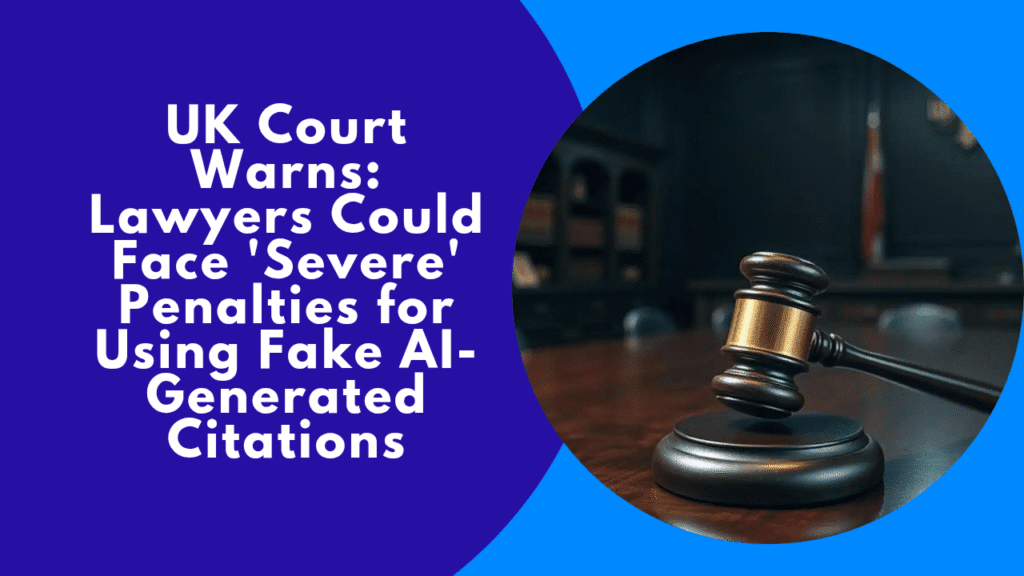Lawyers in the UK are being put on notice: relying blindly on artificial intelligence for legal research could have serious consequences.
In a recent ruling from the High Court of England and Wales, Judge Victoria Sharp emphasized that legal professionals must take stronger precautions to avoid the misuse of AI in their work.
Judge Sharp, addressing two recent cases in her decision, stressed that generative AI tools like ChatGPT “are not capable of conducting reliable legal research.”
“These tools can generate responses that sound coherent and convincing — but those responses may be entirely wrong,” she wrote. “They may confidently assert things that are simply false.”

This doesn’t mean lawyers are barred from using AI altogether. However, Judge Sharp made it clear: lawyers have a professional obligation to verify any AI-assisted research against authoritative legal sources before relying on it in their work.
With an increasing number of cases where lawyers (including some representing major AI companies in the U.S.) have cited AI-generated falsehoods, Judge Sharp warned that more must be done to ensure that proper guidance is followed. Her ruling will be shared with the Bar Council and the Law Society to raise awareness within the profession.
The court highlighted two concerning examples:
- In one case, a lawyer representing a man suing two banks submitted a filing with 45 citations — of which 18 referenced cases that did not exist. Many others misquoted legal texts or were irrelevant to the case at hand.
- In another case, a lawyer representing a man evicted from his London home included five citations that also appeared to be nonexistent. The lawyer denied using AI directly but admitted that the citations might have come from AI-generated content surfaced through Google or Safari. Judge Sharp noted that although the court chose not to pursue contempt charges in this instance, this decision “does not set a precedent.”
The message was clear: “Lawyers who fail to meet their professional obligations in this area risk facing severe sanctions,” Judge Sharp stated.
Both lawyers involved in these cases have been referred — or referred themselves — to professional regulatory bodies.
The court underscored that consequences for such breaches could range from public reprimands to cost penalties, contempt proceedings, or even referral to the police.
As the legal profession navigates an era of powerful AI tools, Judge Sharp’s ruling serves as a stark reminder: technology can assist — but it must not replace — the rigorous standards of accuracy and integrity that the law demands.
Also Read : Anthropic Appoints National Security Expert to Its Governing Trust

